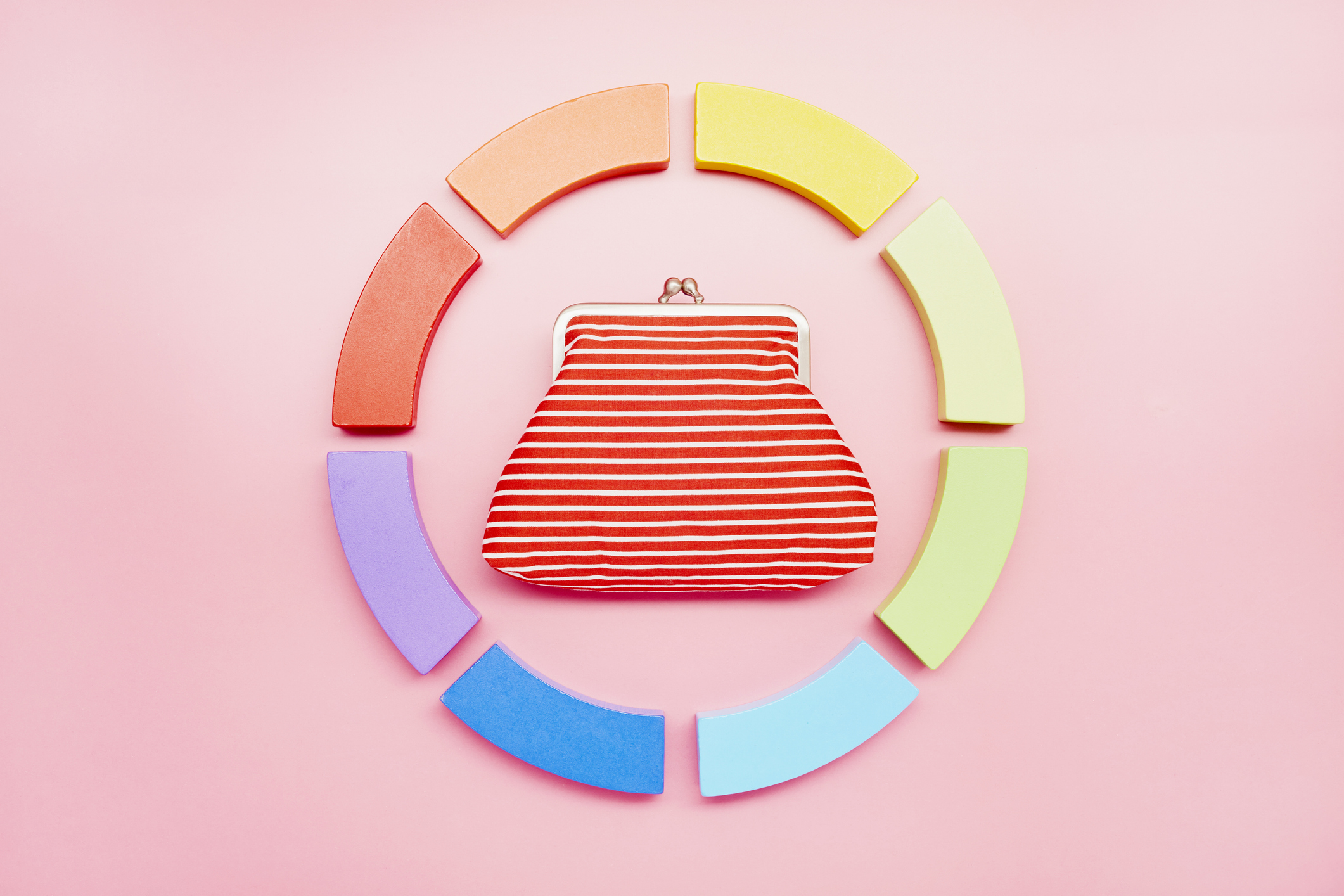Cash in with the “current account circuit”
Ruth Jackson explains how the juggling money between high-interest current accounts, could earn you an average 3% interest on up to £17,000 of money, retaining instant access.

Get the latest financial news, insights and expert analysis from our award-winning MoneyWeek team, to help you understand what really matters when it comes to your finances.
You are now subscribed
Your newsletter sign-up was successful
Want to add more newsletters?

Twice daily
MoneyWeek
Get the latest financial news, insights and expert analysis from our award-winning MoneyWeek team, to help you understand what really matters when it comes to your finances.

Four times a week
Look After My Bills
Sign up to our free money-saving newsletter, filled with the latest news and expert advice to help you find the best tips and deals for managing your bills. Start saving today!
If you want a decent return on your savings these days, you need to put your money in a current account rather than a traditional savings account. Interest rates on current accounts are as much as five times higher than those offered by the average savings account. Low maximum balances and rules on direct debits can often put people off using them. However, if you set up a "current account circuit", you could earn an average 3% interest on up to £17,000 of money, retaining instant access so you can move it if a better rate comes along.
A current account circuit is where you open several current accounts and have standing orders moving money around all of them, so you can easily meet each account's paying-in requirements and maximise each account's balance limits. The hardest part of this arrangement is probably getting started, as all of the form filling-in to open the accounts can be daunting. But once you've done it, the rest is relatively straightforward.
How many accounts you open will depend on how much you have to deposit (you will obviously want to prioritise the accounts that pay the highest rates on the most money). Nationwide pays 5% interest on up to £2,500, Tesco Bank pays 3% on £3,000, TSB pays 3% on £1,500, Bank of Scotland will pay 2% on balances up to £5,000 (from 11 June), and Lloyds pays 2% on balances up to £5,000. Go with the Nationwide account first (note that the minimum monthly deposit is £1,000), and then put £3,000 into the Tesco account, and so on until you've deposited all your cash.
MoneyWeek
Subscribe to MoneyWeek today and get your first six magazine issues absolutely FREE

Sign up to Money Morning
Don't miss the latest investment and personal finances news, market analysis, plus money-saving tips with our free twice-daily newsletter
Don't miss the latest investment and personal finances news, market analysis, plus money-saving tips with our free twice-daily newsletter
Now you need to set up standing orders. If you set up all five accounts, then the maximum monthly funding requirement is £1,500 (for Lloyds), so the easiest thing is to bounce that amount between all the accounts. Simply set up a standing order to move £1,500 from account to account once a month.
Next, you need to check if any of the accounts require you to have direct debits going out of them in order to get the bumper interest rate. In this case, Lloyds and Bank of Scotland require two direct debits and Tesco Bank three. You can move existing direct debits to cover this, or you could open a savings account that accepts payments by direct debit Tesco's internet saver and the Post Office's online saver both do. Alternatively, you could set up charity direct debits for as little as £1 a month.Manage all this, and you will have found a home for up to £17,000, earning a good amount of interest. This set-up is probably the best possible home for cash savings at the moment. Just make a note in your diary to reassess the situation in 12 months' time, as the 5% rate on the Nationwide account runs out then, and others may have dropped their rates.
You can also make a £230 immediate gain if you take advantage of switching bonuses. You will receive £130 for the TSB account if you open it via MoneySavingExpert.com; just make sure you read the small print, as this means a full switch whichever account you do the switch from will be closed and the direct debits moved to the TSB account. You can also get £100 if you get a friend who has a current account with Nationwide to send you a friend's link to open your account. This doesn't require a full switch. Plus, once you have your Nationwide account, you can then earn £100 for every friend who opens an account on your recommendation. Just fill inthe form, which you can find in your online banking page.
If that all sounds like too much effort, you can still earn up to 5% interest on £4,000 just by opening the Nationwide and TSB accounts. These two don't have any requirement to have active direct debits in place, so you can just set up one standing order from each account to the other and bounce £1,000 between the accounts each month to meet the minimum funding requirements.
In the news this week
Financial advisers are starting to cast their nets beyond the very wealthy when it comes to inheritance tax (IHT) shelters, according to a report by researcher Intelligent Partnership (IP), says Vanessa Houlder in the Financial Times. IP focused on investments which make use of business property relief (BPR), because clients only have to survive two years after bequeathing them in order for the investments to be passed on tax-free, instead of the usual seven years for gifts. There are 52 tax-efficient products open to new investors which use BPR, around half of which invest in shares on Aim, the London Stock Exchange's board for smaller companies, many of which can be exempt from IHT .
People who are looking at a potential IHT bill of £15,000-£40,000 and who would have previously been deterred from BPR investments by the higher minimum amounts are now able to "invest an amount which just offsets their potential IHT liability". However, 17% of advisers never recommend BPR.There are also concerns that the valuations of BPR-eligible companies may be being driven up by the tax breaks, creating a potential bubble in Aim shares.
It can be expensive to send money abroad, but Revolut, an innovative payments app, now allows users to transfer up to £5,000 overseas for free, and charges 0.5% for any sum over this amount, says Aime Williams in the Financial Times. Traditionally, consumers wanting to transfer funds to overseas bank accounts are charged a "host of transaction fees" and offered a lousy exchange rate. For example, last year, FT Money found that Barclays, Lloyds and Natwest were charging their customers "around 5% more for euros than their own traders would pay for the currency on the interbank market".
Viewber, a new service launched last month, allows people to earn extra cash by playing at being an estate agent, says the Mail Online. Register on their website and you will be assigned a local property and a time to meet prospective buyers. You'll only get £10-£20 per viewing, plus a travel allowance, but it's not a bad way to earn a bit of "pin money".
Get the latest financial news, insights and expert analysis from our award-winning MoneyWeek team, to help you understand what really matters when it comes to your finances.

Ruth Jackson-Kirby is a freelance personal finance journalist with 17 years’ experience, writing about everything from savings accounts and credit cards to pensions, property and pet insurance.
-
 Should you buy an active ETF?
Should you buy an active ETF?ETFs are often mischaracterised as passive products, but they can be a convenient way to add active management to your portfolio
-
 Power up your pension before 5 April – easy ways to save before the tax year end
Power up your pension before 5 April – easy ways to save before the tax year endWith the end of the tax year looming, pension savers currently have a window to review and maximise what’s going into their retirement funds – we look at how
-
 Thousands of Brits switch to Nationwide, Monzo and NatWest – which banks are least popular?
Thousands of Brits switch to Nationwide, Monzo and NatWest – which banks are least popular?We look at the most and least popular banks and building societies as current account bank switches reach a record high. Is it worth moving your money?
-
 Lloyds Bank returns with £175 bank switch bonus – is it worth moving banks?
Lloyds Bank returns with £175 bank switch bonus – is it worth moving banks?Lloyds Bank is offering customers £175 to move to one of its Club accounts. We look at whether it’s worth taking advantage of the bank switching bonus
-
 Best and worst UK banks revealed
Best and worst UK banks revealedWe reveal the best UK banks – and the worst – when it comes to managing your money and good customer service. How does your provider compare?
-
 Lloyds Bank unveils new pension service – is it any good?
Lloyds Bank unveils new pension service – is it any good?Lloyds is the first high-street bank to launch a ready-made pension service. How does it work, is it any good and who can save in it?
-
 iPhone users can now check bank balance from Apple Wallet
iPhone users can now check bank balance from Apple WalletNew tool aims to make it easier for smartphone users to track bank balance and spending
-
 TSB pulls £150 switching deal - what are the alternatives?
TSB pulls £150 switching deal - what are the alternatives?TSB has pulled its £150 switching offer, and while there are still other deals on the market, offering up to £200, you will need to act quickly to bag the free cash
-
 Nationwide launches £200 switching bonus - plus a linked 8% regular saver account
Nationwide launches £200 switching bonus - plus a linked 8% regular saver accountEarn £377 in one year with Nationwide’s new switching bonus and linked 8% savings account
-
 Watchdog summons banks to explain paltry savings rates
Watchdog summons banks to explain paltry savings ratesSavings rates trail mortgage rates - and the financial watchdog has summoned banks to a meeting amid concerns of profiteering.